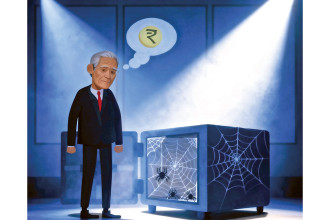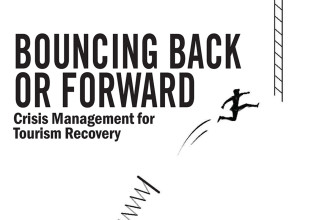
Corruption is an insidious social phenomenon. It erodes trust in public institutions, hinders economic development, and has a disproportionate impact on the enjoyment of human rights, particularly by people that belong to marginalised or disadvantaged groups such as minorities, people with disabilities, refugees, and migrants. It also disproportionately affects women, children and people living in poverty, in particular, by hampering their access to basic social rights such as healthcare, housing and education.
From a global perspective, it is unsettling that according to estimates, hundreds of billions of dollars are paid in bribes every year and that corruption, bribery, theft and tax evasion cost developing countries some $1.26 trillion per year. This would be sufficient to lift the 1.4 billion people living on less than $1.25 a day above the poverty threshold and keep them there for at least six years. One of the most striking examples of the devastating impact of corruption on our lives is also that globally, over 7% of healthcare expenditure is lost to corruption as noted in Transparency International’s 2019 report, The Ignored Pandemic.
In Nepal, the Rule of Law has declined due to prolonged political instability even after periodic elections and formation of a majority government at the centre as well as in the provinces. The political parties, bureaucracy and law enforcement agencies are to blame for the poor Rule of Law and bad governance. The state organs that are supposed to discharge their duties as specified by the laws and constitution have often miserably failed to carry out their duties. Nepal has, over the years, only seen a rise in corruption especially in state mechanisms. When it seeps into the very fabric that is in charge of ensuring rule of law, the common man loses faith in the system. When lawmakers and law enforcers and elected bodies are making headlines on corruption, it leaves the public with little hope in government.
In this issue of Business 360, we spoke to some of the country’s leading lawyers on the importance of Rule of Law especially in line with the economic development of the country. We also asked them how corruption could be curbed when it has seeped into almost all layers of the state mechanism from the ministers down to civil servants and law enforcers. The recent Bhutanese refugee scandal is one glaring example. Here is what they had to say…
Sajjan Bar Singh Thapa Senior Advocate, Supreme Court
Mahesh Thapa Senior Advocate, Sinha Verma Law Concern
Gandhi Pandit Senior Advocate and Founding Partner, Gandhi and Associates
Mamta Siwakoti Founder, The Digital Lawyer
Sajjan Bar Singh Thapa Senior Advocate, Supreme Court

What is corruption as defined by law?
Corruption as defined by law, in a very basic sense, would be anything or any kind of act, omission or not even acting as per the given standard of the law. It can be excessive use of law wherein you will be providing some kind of advantage to a party and getting a benefit out of it as well. Similarly, not acting according to the parameters of the law is also corruption because that can illegally benefit the people involved and you can benefit yourself as well. And third, the omission of your duty is also corruption. Not functioning as per the requirement such as receiving a salary from the state exchequer but not performing, meaning indirectly you are hampering the state exchequer. Corruption is a small word, but it has different connotations and it particularly applies in all sectors and you can bring the word into such a contextual manner that you can prove corruption is everywhere. Corruption is widespread across the world. There are countries where there is zero tolerance for corruption but still, they have not been able to fully control it. There are countries like China where there is capital punishment for corruption but there too there is rampant corruption. It could be in various forms too. But we have to look at its solution as well, a mitigation measure. For example, if the head of the institution or any kind of organisation is not associated with any kind of corruption, there are high chances of it being eradicated due to the trickledown effect as there will be a fear of being prosecuted or fear of you getting caught and with evidence as well.How is it punishable?
There are strict laws in place which are implemented but probably not effective enough or else it would not be at this level. That’s one way of looking at it. But that doesn’t mean we are not able to do it. We have been achieving it but in a minimal manner. The Commission for the Investigation of Abuse of Authority (CIAA) is trying to do whatever it can at least instead of nothing. There are laws for corruption to money laundering in Nepal and additionally, the international community is watching its implementation after the 9:11 incident in the US such as terrorist funding, banking fraud, illegal weapon financing, and human trafficking, as well. There has been strict surveillance and monitoring by the international committee. Here, if we are found guilty of corruption then there is a jail term. It is a criminal offence. Also, whatever amount one is found guilty of amassing illegally is confiscated and one has to pay a similar amount in fine.There is a saying in Nepali ‘Ramro haina hamro’ meaning we are not electing political leaders for their efforts and vision but for the benefit of the party or for personal gains, resulting in a rampant seepage of corruption into the system.
Why has corruption grown and seeped into the state mechanism?
Corruption takes place all over the world. There are countries where there is zero tolerance for corruption but still, they are not able to control it. There are countries where there is capital punishment for corruption for countries like China but there is rampant corruption as well, it could be anywhere and everywhere and in various forms too. Corruption is taken quite lightly in our country. Here, we lack discipline and it has eroded in such a way that immoral activities are regarded as justifiable and people view immoral behaviour as a norm of the society. Also, here people have started choosing political leaders on the basis of their biases. There is a saying in Nepali ‘Ramro haina hamro’ meaning we are not electing political leaders for their efforts and vision but for the benefit of the party or for personal gains, resulting in a rampant seepage of corruption into the system.How do you view business influence on politics and how this leads to corruption?
What happens when we start stealing from our own house? A recent headline in one of the local newspapers said that the information about the budget, particularly on the customs of electric vehicles, was leaked. And some of the business houses imported and placed orders before the budget speech causing the government a loss of Rs 90 crores in revenue. The influence of business on politics has caused many discussions and raised questions as well. The game of money laundering to pull people to one side to get benefits has been directly or indirectly seen in the system. All of the cases cause benefits to the beneficiaries but not to the country or the people residing in it.Your views on the Bhutanese refugee scam. How do you see it ending, will justice prevail when so many big political names are involved?
This is a golden opportunity for our country and for its people to come out of this quagmire of corruption. If the political people, those who are ruling the country, have any kind of faith in the system or any love towards the country, this is the correct time to set an example, not only nationally but internationally as well. Nepal’s passport is considered one of the weakest in the world. While travelling to a foreign nation, we are judged and if we are not able to make a call on the Bhutanese refugee scam, we could be called a country which sells its citizens violating humanitarian rights. In my opinion, the verdict should be given on a serious note as this case is not only a matter concerning the nation but has grabbed international attention. Thus, it should be handled with sincerity.Your thoughts on the Rule of Law in the country especially in light of the rampant increase of corruption even in courtrooms, public offices, Parliament and state mechanisms like the police, government offices?
We have started making a mockery of the Rule of Law. Rule of Law is a philosophy where it says that all laws shall be implemented equally among the citizens and everyone will be under the law and nobody is above it. If there is corruption, it automatically means there is violation of the laws which affects the state and the taxpayers, especially in the long run. Overall, the bureaucracy should be intact and independent of any influence of political parties. The bureaucracy should be strong and intact and if there is the smallest tweak, it could result in corruption and the essence and meaning of the Rule of Law will be lost. I personally feel that it can be controlled through strict and unwavering bureaucracy at the top ultimately resulting in a gradual trickle-down effect.Mahesh Thapa Senior Advocate, Sinha Verma Law Concern

What is corruption as defined by the law?
Corruption is a broadly defined term and there are two laws that check on corruption here in Nepal, the Corruption Act and the second one is CIAA. Using government funds or taking government funds for your personal use is a simple definition of corruption. By law, if someone takes money for doing or without doing work is called corruption. Some government officials at national and public service levels might take gifts from other people as a small bribe to complete a task, taking that gift will also be claimed as corruption. The government is paying the officials from the taxes of the public, hence the misuse of the funds in various forms is known as corruption.How is it punishable?
We do have strict rules and it depends on the magnitude of the crime regarding the punishment. It depends on the level of corruption, especially the measurement of the amount involved with jail terms as well. Corruption can take place by both government officials or private sector but if a public official is caught during the act of ‘give and take’, the government official who has taken an oath will have a higher magnitude of consequences as they are addressed to be a little more responsible for such crimes.Why has it grown and seeped into the state mechanism?
Corruption to some extent has gained social recognition. Suppose I am a government official and earn around Rs 40-80 thousand, I’ll not have a corresponding lifestyle to build a house, send my children to a reputed school that too in a very short time span. But, politicians here in Nepal gain traction way faster and people in the surrounding do not raise a single voice to question where and how one has the source to afford the luxury lifestyle in such a short span.Corruption is rampant in Nepal at both the state and private level. If we look at it from a bird’s eye view, the act of money laundering is comparatively lower on an individual level than in the state level where big infrastructure and policy shifting is concerned.We have socially accepted that form of corruption and on the same hand, the state mechanism has also accepted and recognised it. Corruption no matter how small or big is a crime at the end but small-scale corruption has been normalised. In conclusion, a tooth which has just started to decay will not cause much problem but as time goes by, it starts to spread and causes a bigger problem. Additionally, the pressure from society, family and peers to have good income and expenses by government officials encourages people to opt for an illegal way to earn money. Hence, corruption, in the same way, has seeped into the roots of our country’s mechanism.
How do you view business influence on politics and how this leads to corruption?
Corruption is rampant in Nepal at both the state and private levels. If we look at it from a bird’s eye view, the act of money laundering is comparatively lower on an individual level than at the state level where big infrastructure and policy shifting is concerned. The smallest tweak in policies could result in huge benefits for business people. The need to earn and be at the top of the game is human nature and it is the same for business houses. There is competition in the market and every other person wants to be in the number one position, and for the thirst, they tend to take support and help from political parties resulting in corruption but the ones that helped are the primary component in making it possible. The primary actor is the state and more importantly the bureaucracy. Both of the parties are responsible for such acts but the government bodies are considered more liable and responsible.Your views on the Bhutanese refugee scam. How do you see it ending, will justice prevail when so many big political names are involved?
In my opinion, the Bhutanese refugee scam is more of a cheating and organised crime rather than a corruption case. Here, the people involved have used the power of the state but have cheated the people of the country. There are many big politicians involved and this is not a case related to Nepal only and it has been in focus from the international committee as well. When we have terms as refugees, it is directly linked with humanitarian aspects and in this particular case, they have been scammed and cheated. This is a huge crime committed and I believe that the government will hold a correct discussion to address this issue. On the contrary, we also have to accept that not all involved will be convicted as the law and courts work according to proof. Regardless of that, people who were involved should be punished as this is a humiliation when Nepal already ranks in the lowest spectrum of the weakest passports all over the world.Your thoughts on the Rule of Law in the country especially in light of the rampant increase of corruption even in courtrooms, public offices, Parliament and state mechanisms like the police, government offices?
Rule of Law in simple language means good governance and everything must happen according to the law. When cases like these arise, the government must look into the case with the eyes of the rules rather than your own. As a lawyer, I feel that the verdict of cases should be predictable. If I go to a courtroom to fight a case and have done a proper analysis about the case and believe that it’s favourable for my client and yet the opposing side wins, it could be the violation of Rule of Law and the same goes for the case of Bhutanese refugee scam.Gandhi Pandit Senior Advocate and Founding Partner, Gandhi and Associates

What is corruption as defined by the law?
Corruption in simple language is violating the law by earning or doing something illegal against the rules and regulations of the country. So, when there is Rule of Law, the person who violates the law and earns money illegally is brought under the radar of the government. Corruption is usually linked with a person who is in power, government and position to gain unlawful benefit or to provide a situation to make others earn money at the cost of the government’s earning. Corruption is a very serious crime. It is a crime against us, the state and morality, and corruption by itself could be some kind of a sophisticated kind of crime. We also call it white collar crime. There is a range of corruption that we have been witnessing in society. Adhering to the Rule of Law could help in eradicating corruption but at the same time government bodies should be capable of looking at any cases of such in an independent manner to give a non-biased adjudication.How is it punishable?
There is an anti-corruption act and abuse of authority act which acts in accordance with any case of corruption. Any person who is found guilty of corruption is liable to face a jail term according to their offence, pay a penalty and their property is confiscated. The purpose of the law is to mete out strict punishment to people involved in corruption and also to make people aware of the consequences of such actions. Our country’s laws against corruption are strict. The CIAA monitors illegal acts and the guilty are charged and their property confiscated. The punishments can be divided into two objectives in our system. One, the people involved in the corruption are to be fined as per their charges and second, is setting an example to the public to create awareness of the consequence of the misuse of state money.Why has it grown and seeped into the state mechanism?
Every unit of the government and society condemns corruption and there are proper laws and mechanisms that have been drafted to investigate and prosecute those who are responsible for committing such crimes but regardless of the strict laws, corruption is seen to be widespread and there are several reasons for that. First, is a public procession. The government mechanism and the political system are responsible for the growth and control of corruption but the public has the power to raise its voice and stand against it. As citizens, if we are strong enough to question them and boycott personnel or parties who are involved in corruption, then people will be scared to commit crimes.There are two factors, lack of public interest in the matters of the state and unstable government which are the leading causes of corruption and because it is intricately woven within the system, it has become easy for the public officials to perform such crimes with no traces.Secondly, there are many loopholes in the system which have created a safety net for those involved in corruption and this is mostly found in white collar crimes. Financial irregularity, political instability and the people in power have started to believe that they are above the rules and nobody can touch them. Similarly, there are two factors, lack of public interest in the matters of the state and unstable government which are the leading causes of corruption and because it is intricately woven within the system, it has become easy for the public officials to perform such crimes with no traces.
How do you view business influence on politics and how this leads to corruption?
There is a belief in Nepal that people who are involved in business are interested in joining the government but in my perspective, big business people would prefer to stay away and in a safe zone rather than to join a party. For instance, if they need to bribe somebody the cost of personal expenses would be high, simultaneously increasing their cost of production. Corruption brings uncertainty in the business environment and businesses do not want those kinds of uncertain scenarios. At the same time, business is all about competition, a simple flaw such as not paying taxes on time or lagging behind could cause loss of a huge sum of money. To be in the game, people tend to take the second path of using their source and money to achieve their set desire, they choose the easy path of bribing and money laundering but this is an effect of the government’s unfavourable laws and inability to cope up with the market and its situations cause people to take such paths inevitably leading in corruption and laundering of money under the table kind of acts. Such acts of incompetence from the government is hampering the country in a profound manner. There is a lack of foreign development investments (FDIs) and the reason behind it is ultimately the government and its instability. Investors do not prefer to invest here as the laws and provisions are a hassle to deal with. In each and every step, people seek personal benefits and make the process so difficult that investors turn away.Your views on the Bhutanese refugee scam. How do you see it ending, will justice prevail when so many big political names are involved?
It is unfortunate that corruption cases like the Bhutanese refugee scam are rampant in the country. The implications it has had on the national and international forum is one of the most degrading images we have created for ourselves internationally. Taking bribes from people and sending them to the US under false reports is not only considered a serious crime but a violation of humanitarian rights. These acts have adverse effects on the public more so ever. Our passports are already considered weak and now with the case, we as citizens will probably face more problems while travelling. As the case is still in court, I as a lawyer have to abide by the system. Any person is innocent until found guilty. The proof and credibility will decide what will be the further actions relating to the case but despite saying so, this is one the first cases where we have seen an independent investigation taking place. I believe that the people involved will be punished but maybe not all will be charged and prosecuted as per the allegations. The case was highlighted due to public scrutiny and the media who realised the importance of this matter and put pressure on the people who were involved in it.Mamta Siwakoti Founder, The Digital Lawyer

What is corruption as defined by the law and how is it punishable?
Prevention of Corruption Act, 2059 Section 2 of Corruption Act has defined the following offences listed in Chapter 2 as corruption: Section 6 has defined giving and taking of graft as an offence with punishment ranging from Rs 25,000 to Rs 100,000 and above with a punishment of jail term according to the charges and allegation. Similarly, accepting goods or services free of costs or at lower prices, taking gift, present, award or donation, taking commission, leaking revenue, getting illegal benefit or causing illegal loss with malafide intention, preparing false documents, translating false documents, tempering government documents, causing damage to government or public documents, disclosing secrecy of question papers or altering the result of examination, engaging in illegal trade or business, claiming false designation, giving false particulars, damaging public property, illegal enrichment (property deemed to be acquired illegally), and accomplice are the other offence mentioned in the prevention of Corruption Act, 2059.Why has it grown and seeped into the state mechanism?
1. Weak institutional framework with insufficient policies on transparency and accountability has created an environment of impunity 2. Low salaries and incentives due to which government officials are easily enticed 3. Political patronage and nepotism 4. Lack of literacy and awareness among public 5. Lack of investigative journalism in NepalHow do you view business influence on politics and how this leads to corruption?
While businesses can play a positive role by influencing much needed policies on entrepreneurship, taxation and other corporate matters to make investment easier in Nepal and to bolster the investment climate, however, if such influence becomes excess and unregulated, it has the potential to lead to corruption in the following manner: 1. Lobbying policies for the benefit of the business/investment is detrimental to the country’s economy, values and national interest. 2. When influential business people turn into politicians, this might create conflict of interest as former officials may use their inside knowledge, connections, and influence to benefit private entities. 3. Regulatory agencies can end up being unduly influenced or controlled by the industries they are supposed to regulate in return of payment. 4. Businesses can engage in corrupt practices by bribing officials, colluding to manipulate bids, or receiving kickbacks in exchange for securing government contracts.Your thoughts on the Rule of Law in the country especially in light of the rampant increase of corruption even in courtrooms, public offices, Parliament and state mechanisms like the police and government offices?
There is a need for renewed leadership and systemic reform in our country. With rampant corruption in all sectors, even the younger generation has stopped having faith in the government. So, it is quite a dire situation which if not addressed will yield devastating consequences for the future. I still remain hopeful though as many from the younger generation are attempting to contribute to society through various social and business enterprises. Even in parliament and government services, a young and capable workforce is entering which has given a glimmer of hope to people. READ ALSO:
Published Date: June 27, 2023, 12:00 am
Post Comment
E-Magazine
RELATED Opinion





